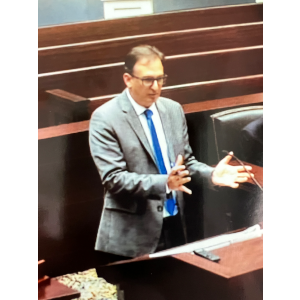How to Stop a Florida Guardianship
Being subjected to a guardianship is usually not something desired. The cost can be high, the loss of privacy is upsetting, and the loss of control over one’s life can be dehumanizing. There are ways, however, to stop a guardianship proceeding in Florida, or at least take steps to control the outcome.
When a guardianship petition is filed, it is usually part of a two step process: the petition for guardianship, and the petition for incapacity. Once the petition for incapacity is filed, the guardianship court will appoint a three person panel to examine the proposed incapacitated person. The panel is typically made up of a medical doctor (physician), psychologist, and a lay person. These committee members will examine the proposed incapacitated person, in person, to determine whether the person is incapacitated and whether a guardian is necessary. If two or three members of the committee determine that the person is incapacitated, the proceedings continue. If two or three members determine that the person is not incapacitated, the proceedings are halted and the petition for incapacity (along with the petition for guardianship) is dismissed.
There are really no rules regarding how the committee interviews are to take place, and who the members are permitted to speak with. I have seen the interviews take place with the alleged incapacitated person alone, and I have also seen the interviews take place with family members present. The ability to have a trusted family member present can go a long way towards a finding of no incapacity in cases that are close calls. (Obviously, persons in vegetative states or who completely demented will not benefit from having family members present.)
If at least two committee members determine incapacity, the proceedings continue. The guardianship court will appoint an attorney to represent the alleged incapacitated person. Instead of using the court appointed attorney, the alleged incapacitated person has the right to have a different attorney represent them at the trial. Selection of the proper guardianship attorney can be critical to avoiding the guardianship.
The next step is the trial on incapacity. At the trial, any person opposing incapacity may present witnesses and evidence. An expert witness on the alleged incapacitated person’s mental state is permissible.
If the guardianship court finds incapacity, the next step is the guardianship hearing. The hearing on whether a guardian will be appointed, and if so who, may take place at the incapacity hearing, or it may take place at a subsequent hearing.
There are certain steps that, if in place prior to the guardianship proceeding, can avoid the guardianship altogether, even if a finding of incapacity has been made. These steps include the creation and funding of a revocable living trust, the creation of a durable power of attorney, and the creation of a health care proxy. The guardianship court is required to determine whether there are lesser restrictive means to protect the incapacitated person that a full fledged guardianship. If there are such less restrictive means, the guardianship court is required to to implement them instead of the guardianship, unless certain circumstances are present (which could be financial exploitation of the incapacitated person by the person named as fiduciary in the documents).
- A revocable trust is a trust that names a successor trustee to manage one’s assets in the event of incapacity. If the assets have been retitled in the name of the revocable trust, the successor trustee will immediately assume control of the assets, obviating the need for a guardianship in many cases.
- A durable power of attorney gives to a named person (the agent) the right to control the finances of the principal who is now incapacitated. A durable power of attorney is a well recognized document under Florida law.
- A health care proxy allows another person to make medical decisions on one’s behalf.
With these three documents in place, the guardianship court may avoid the appointment of a guardian.
If the guardianship court decides that the appointment of a guardian is necessary, the court is required to determine whether a preneed guardianship designation is in place. This is a document that names a person to serve as guardian in the event one is needed. The guardianship court will normally appoint the named person unless certain circumstances are present.
If these documents are not in place prior to the filing of the incapacity petition (or the documents are disregarded by the guardianship court), and, in spite of one’s best efforts, the guardianship court finds incapacity and appoints an undesired person as guardian, all is not lost. There is an absolute right to file an appeal, challenging the findings and rulings of the court.
If appeals are not successful and the guardianship ends up in place, the ward or any family member of the ward, is permitted to file a suggestion of capacity, which could force the guardianship court to make a finding of restoration of capacity and termination of the guardianship.
Jeffrey Skatoff is a Florida guardianship lawyer who handles contested and uncontested guardianship matters throughout the State of Florida.







